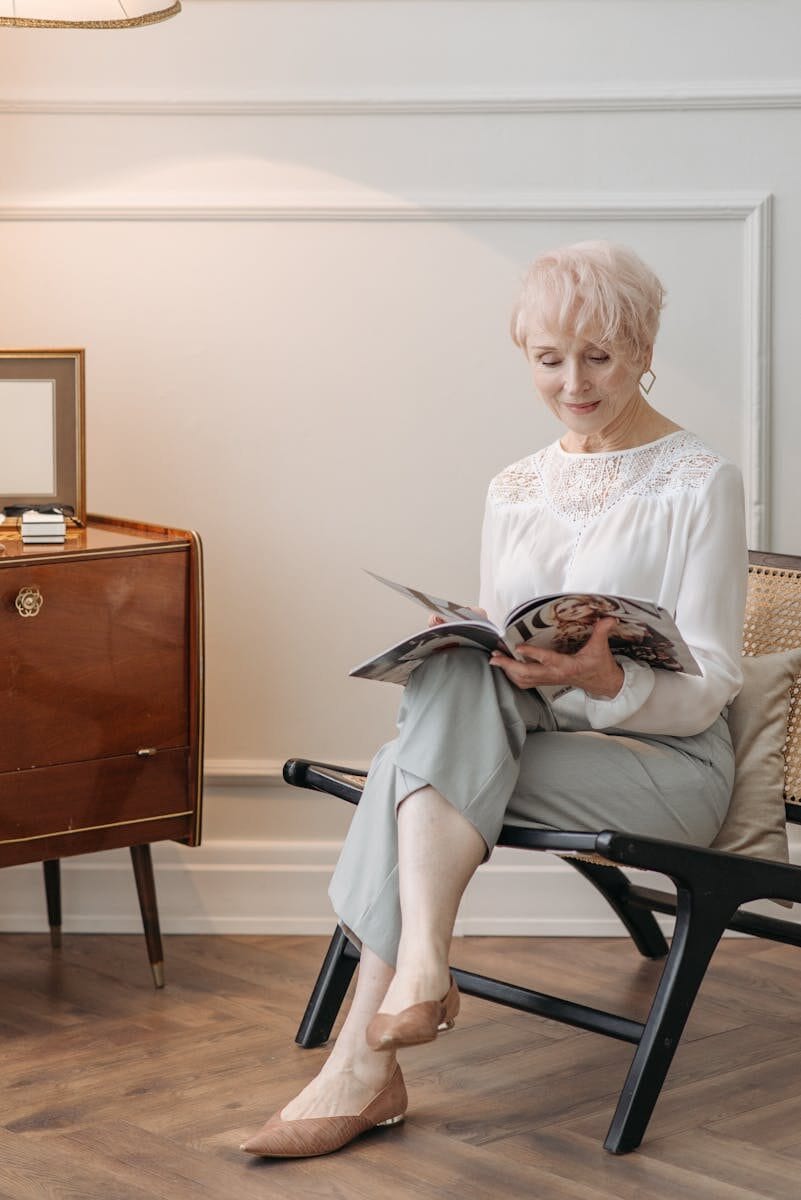You might not realize it, but your brain is always a few steps ahead of you. Every moment, it’s making predictions about what someone will say, how the day will go, whether something will hurt or feel safe. And while that might sound like a good thing, the problem is: those predictions are not always positive. They’re not always accurate, either. Especially when anxiety is involved.
More women than ever are living with anxiety and not just the kind you can breathe through or sleep off. The kind that follows you into meetings, relationships, quiet Sunday mornings. According to the latest research, nearly 1 in 5 adults in the U.S. reported symptoms of anxiety this year, with women disproportionately affected. It’s no longer something rare or unusual. It’s the background noise of modern life.
You already know that anxiety doesn’t just come out of nowhere. It starts with your brain trying to predict what might happen next. That tightening in your chest before a conversation? That loop of worst-case scenarios before you’ve even left the house? It’s not weakness—it’s your brain doing its job. A brain trained over time to expect stress, conflict, disappointment.
The more you expect something to go wrong, the more your mind looks for signs that it will. And soon, even small things—an unread message, a silence in the room, a passing look—start to feel like proof. But what if that could change? What if the same part of your mind that prepares for pain could learn to expect peace? What if anticipation didn’t have to mean dread?
This is what we want to explore together: how your brain’s natural tendency to predict can either keep you anxious or help you feel safe again. And how small shifts in what you expect can change how you live.

If you’ve ever felt a surge of fear over something that hasn’t even happened, you’ve experienced this firsthand. The racing thoughts. The tightening chest. The quiet assumption that something bad is coming, even when there’s no real evidence. That’s your brain doing what it’s built to do—fill in the blanks with guesses based on your past.
And for many women, those past experiences haven’t been light or easy. They’ve been filled with pressures to keep everyone happy, stay safe, meet expectations, shrink yourself to fit into someone else’s version of “acceptable.”
So your brain starts to predict threats. Emotional ones. Social ones. Even imagined ones. It learns to expect rejection, disappointment, being let down or overlooked. And it does this to protect you—to brace you. But instead, it keeps you in a constant state of tension, always preparing for something that might never come.
Here’s the truth that changed everything for me: what your brain expects, it begins to look for. And what it looks for, it finds. If you expect discomfort, your brain will scan your environment until it confirms it. If you expect someone to criticize you, every silence becomes loaded, every glance suspicious. Anxiety thrives in these predictions not because you are weak, but because your brain is trying to protect you in a world that hasn’t always been kind to you.
But protection doesn’t have to mean fear.
The power to anticipate can be a gift when you learn how to use it differently. Instead of letting your mind default to worst-case scenarios, you can teach it to expect something better. Not because you are being naïve but because you are no longer willing to live in the shadow of your past.
How to Use Anticipation to Soothe Anxiety
What if the same part of your mind that prepares for pain could learn to expect joy instead? Imagine if your brain didn’t just predict failure, but also anticipated your wins, your celebrations, your moments of recognition.

What if every little success, every kind word, every breakthrough became part of the story your brain tells—building a bank of positive emotional rewards that your mind can draw from when the next challenge arrives?
Open a Bank of Celebrations
Anxiety often feels like it comes out of nowhere, but it starts with your brain’s predictions. When your mind is trained to expect stress and disappointment, it begins to look for signs of them everywhere. But what if your brain could learn to expect joy, success, and recognition instead? By celebrating small wins and acknowledging your achievements, you can start to build a bank of positive emotional rewards. Over time, this shift in anticipation can help ease anxiety and reshape your reality, allowing you to live with greater confidence and peace.
Celebrations and awards don’t just feel good in the moment. They can serve as a foundation—a new set of predictions your brain can turn to when it’s preparing for what’s next. A promotion at work, a kind word from a friend, or even just a small, personal achievement is an emotional reward that rewires the brain’s expectations. Slowly, your brain learns to anticipate good things—just as easily as it once expected the worst.
When your mind expects success, you are less likely to live in fear of failure. Small shifts in what you expect can change how you feel, and ultimately, how you live.
Anticipation isn’t the enemy. It just needs better data and conscious direction. When you train your brain to anticipate support instead of threat, solutions instead of spirals, you begin to disarm the anxiety loop.
Change the Rehearsal Script
Most people unconsciously rehearse worst-case scenarios. Flip the script.
- Visualize a future event going well—see it, hear it, feel it.
- Focus on how it would feel to be calm, competent, connected.
Giving your brain another story to believe in is an choice.
Re-calibrate your Thoughts Pattern
When anxiety shows up, ask:
- Is this a real threat or a learned prediction?
- Has this fear actually come true before—or is it a habit of thought?
Often, the brain is using outdated predictions. Challenge them gently.
Create Predictable Routines
Predictability calms the nervous system. Structure, routines, and small rituals create “safe zones” where your brain can rest.
- Start your day with a grounding habit: breathwork, journaling, tea.
- Bookend your evenings with a simple, repeated practice.
Your brain begins to predict peace in those moments.

Separate Emotional Logic from Statistics
Anxiety often hinges on what’s possible. Ground yourself in what’s probable.
- Is it possible I’ll fail? Yes.
- Is it likely, given my effort, support, and preparation? Maybe not.
Learning to separate emotional logic from statistical logic is an underrated superpower.
This doesn’t mean plastering on fake positivity or ignoring hard truths. It means recognizing when your thoughts are guesses, not facts. It means gently asking yourself: “What else might be true here?” or “Is it possible this could go right?” It’s subtle, but powerful. The moment you expect something more—peace, connection, safety—your brain begins to look for that too. And when it finds it, even in small ways, that’s how anxiety loosens its grip.
You won’t change overnight. This is not a switch you flip—it’s a pattern you slowly rewrite. But each time you interrupt that old prediction with a more hopeful one, you begin to shift the course of your experience. You begin to see how the future isn’t just something that happens to you—it’s something you shape.
As a woman, you often carry the weight of anticipating what might go wrong at work, in relationships, or in daily life. This tendency is hardwired into your brain, a survival mechanism that once kept you alert to potential threats. But today, this constant state of anticipation often leads to anxiety, with your mins focusing on what could happen, not what will happen.
I hope you will feel inspired to open a bank account of celebrations for small wins and give your brain the chance to store positive experiences. These emotional rewards form a bank that your mind can rely on when the future feels uncertain. The more your brain expects success and calm, the less power anxiety holds over you. You have the power to reshape your reality, not by ignoring challenges, but by changing how you anticipate them.
You are not broken. You are not too sensitive. You are a human being with a brilliant, protective brain that sometimes overdoes it. The power to anticipate is already yours. The choice is whether you let it feed your fear or guide you toward something better. Much better…
Do you want to share your story and inspire our readers ? Know that YOUR EXPERTISE is paving the way for a fairer, happier society.





